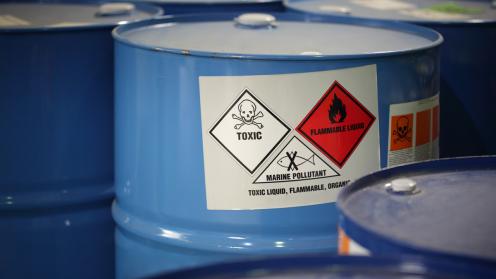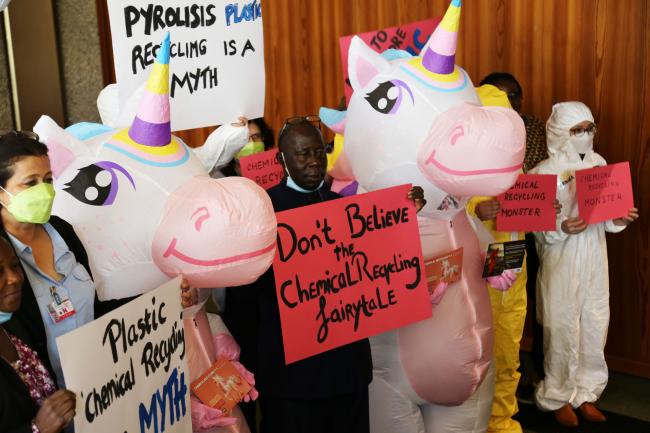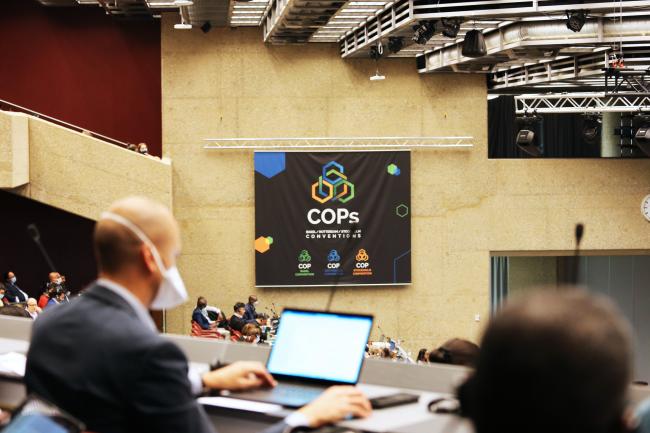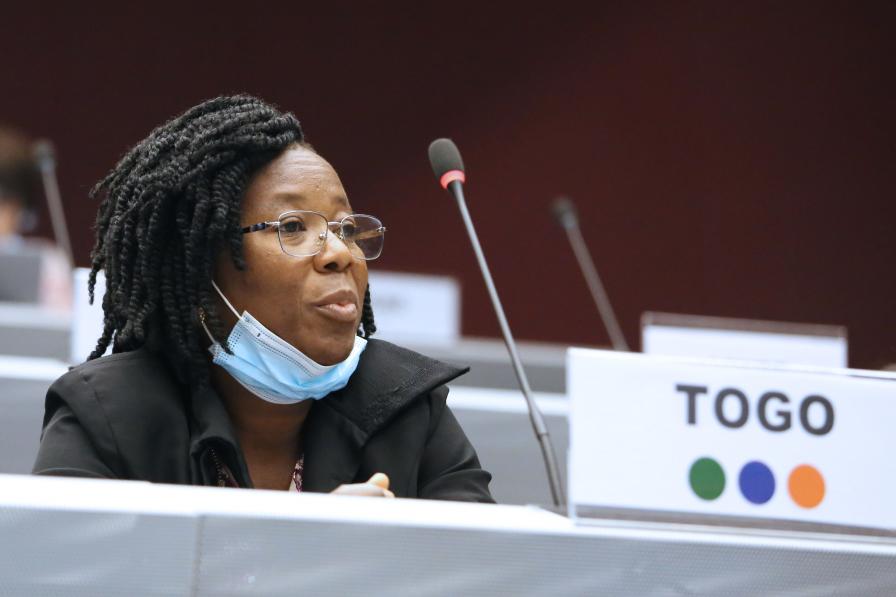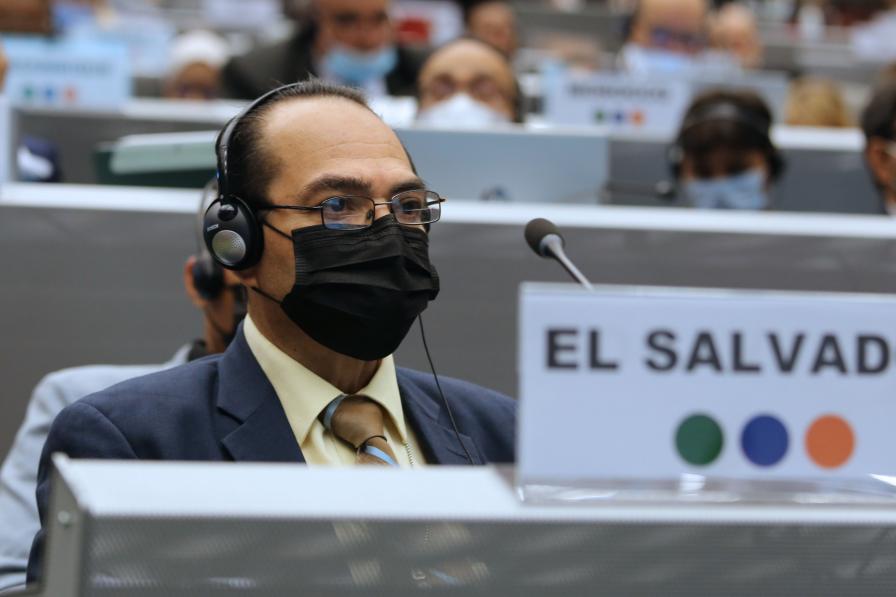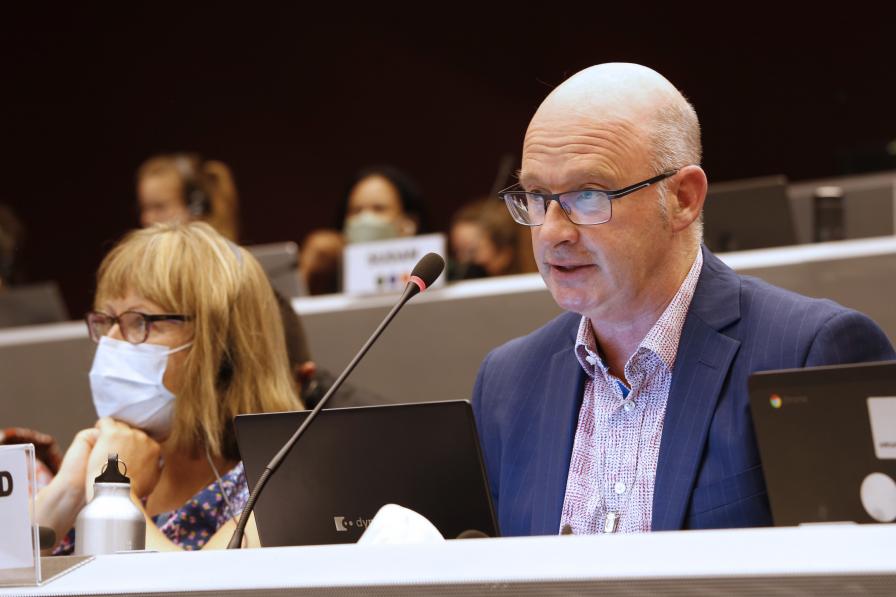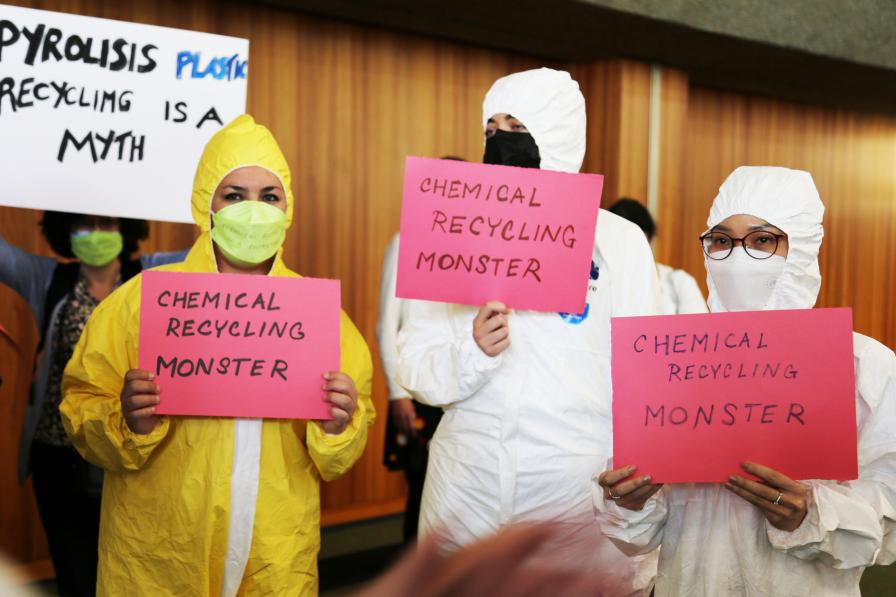It was a day of change at the Basel, Rotterdam, and Stockholm (BRS) COPs. The Stockholm Convention (SC) concluded most of its work, handing the gavel to the Basel Convention (BC). It was also the end of the first week, and a chance to reflect on what is to come.
Want to go deeper on today's talks? Read the Earth Negotiations Bulletin daily report.
In its few allotted days, the SC agreed to eliminate the production and use of the industrial chemical perfluorohexane sulfonic acid (PFHxS), its salts, and PHFxS-related compounds. While production is decreasing, the chemical is found in numerous products, from stain-resistant fabrics to fire-fighting foams. The Convention also took a long, hard look at efforts to meet the deadlines for polychlorinated biphenyls (PCBs) - to eliminate their use by 2025 and to achieve environmentally sound management of PCB waste by 2028. So far it seems the goals may be missed, leaving many to consider how to help countries ramp up efforts. This discussion continues to feature in the negotiations of the financial mechanism, which are due to conclude next week.
The BC has already been working all week in contact groups, because it faces a significant volume of work. But for the next few days, it’s all about the global waste trade and waste management. Most of the wastes that the BC addresses are hazardous, but plastics and household waste are also subject to its prior informed consent (PIC) procedure. This means importing countries can understand what is in a shipment and have the option to refuse it. At this COP, many hope all e-waste will be subject to this procedure.
Looking ahead to the second week, there are a mixed bag of issues. Some are legal, like how to list e-waste in the BC, and how to help countries comply with their commitments across all three Conventions. The Rotterdam Convention (RC) will start its substantive work, hoping to alleviate concerns over the Convention’s effectiveness.
Many developing countries made the case, in several different contexts, that effectiveness and compliance can only stem from the provision of adequate and reliable financial and technical support. A side event featured the special programme on institutional strengthening of the chemicals and waste agreements, which aims to do just that. Another event explored how the BC can contribute to the forthcoming negotiations for a plastic waste treaty.
Observers and some countries noted that governments are cleaning up the messes left by companies that choose to use dangerous chemicals in their products and leave behind or ship waste to developing countries. One side event highlighted the potential of policies to implement extended producer responsibility, while another called into question the viability of chemical recycling as a solution to the plastic waste crisis.
To receive free coverage of global environmental events delivered to your inbox, subscribe to the ENB Update newsletter.
All ENB photos are free to use with attribution. For photos please use: Photo by IISD/ENB | Angeles Estrada Vigil
